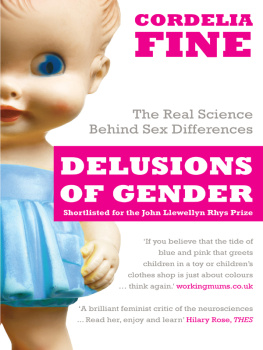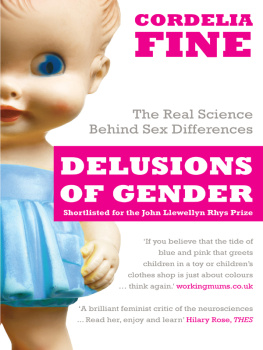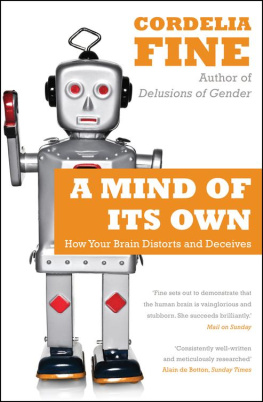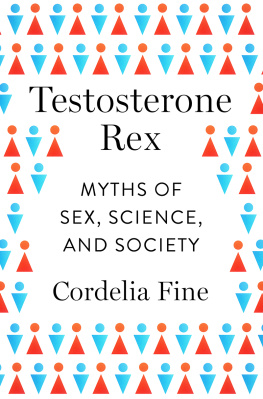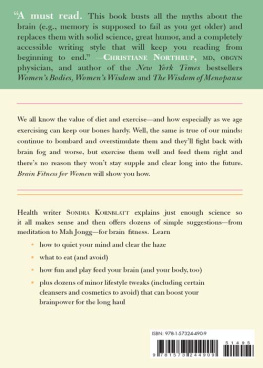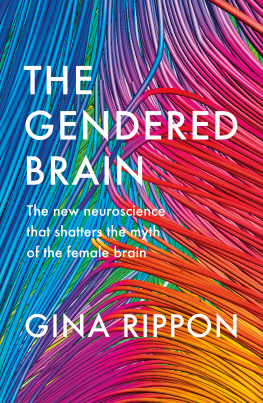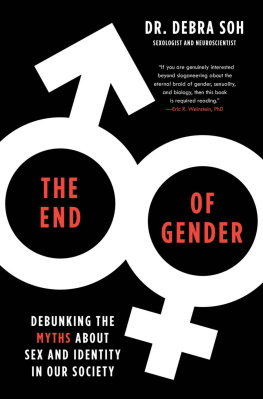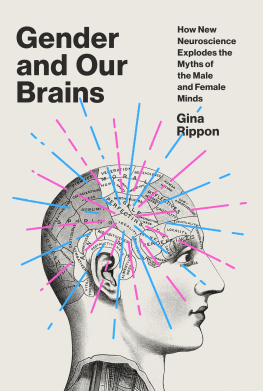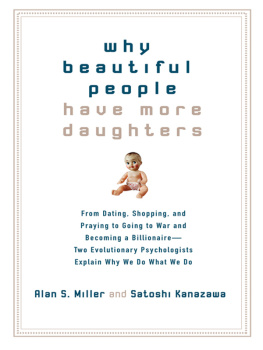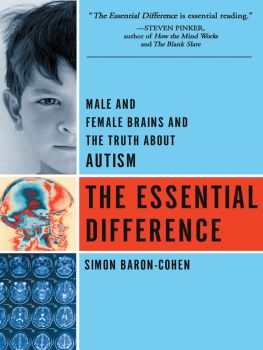
Praise for A Mind of Its Own
We are all vain bigots, thanks to the foibles of the human brain, so argues Fine in her witty survey of psychology experiments An ideal gift for anyone interested in psychology Focus
Clear, accessible writing makes her a science writer to watch. Metro
Filled with quotable stories and interactive ways of how our brain has a buoyant ego of its own and is not the objective tool we might like to believe Bookseller
A light and amusing introduction to the brain and how it works on our perceptions and actions Publishing News
Consistently well-written and meticulously researched [Fines] touching vignettes about life with her young son and her rational but tender husband suggest the buried presence of someone who could in the future rewardingly illuminate the workings of the mind with the studied casualness of the gifted novelist. Alain de Botton,Sunday Times
In breezy demotic, Fine offers an entertaining tour of current thinking [she] is especially fascinating on the blurring of the line between pathological delusions and the normal deluded brain. Telegraph
Fine, with a sharp sense of humour and an intelligent sense of reality, slaps an Asbo on the hundred billion grey cells that literally have shifty, ruthless, self-serving minds of their own. The Times
Fines style is chirpy [with] many affectionately amusing scenes. Guardian
Engaging, intelligent Scotland on Sunday
Fines flair for the humorous and anecdotal makes this a delightful read. Irish Times
Fine sets out to demonstrate that the human brain is vainglorious and stubborn. She succeeds brilliantly. Mail on Sunday
This is one of the most interesting and amusing accounts of how we think we think I think. Alexander McCall Smith
A fascinating, funny, disconcerting and lucid book. By the end youll realise that your brain can (and does) run rings around you. Helen Dunmore
Witty and informative Philip Pullman
Excellent Fines very engaging and chatty style will delight many readers Fine has got it just right. Although she is an academic, she writes like a human being All in all this short and enjoyable book is a must for anyone who wants to get a better understanding of what their brain gets up to when they arent watching it. First class. Brian Clegg, popularscience.co.uk
A fun introduction to some of the factors that can distort our reasoning. Id recommend it to anyone who is just getting interested in the topic, or as a gift for anyone you know who still thinks that their personal point of view is unprejudiced and reliable. Psychologist
Fine is that rare academic whos also an excellent writer. Highly recommended for all public and undergraduate libraries. Library Journal
Remarkably entertaining Los Angeles Times
First published in the UK in 2010 by
Icon Books Ltd, Omnibus Business Centre,
3941 North Road, London N7 9DP
email:
www.iconbooks.co.uk
This electronic edition published in the UK in 2012 by Icon Books Ltd
ISBN: 978-1-84831-396-5 (ePub format)
ISBN: 978-1-84831-397-2 (Adobe ebook format)
First published in the USA in 2010 by
W.W. Norton & Company, Inc., New York
Sold in the UK, Europe, South Africa and Asia
by Faber & Faber Ltd, Bloomsbury House,
7477 Great Russell Street,
London WC1B 3DA or their agents
Distributed in the UK, Europe, South Africa and Asia
by TBS Ltd, TBS Distribution Centre, Colchester Road,
Frating Green, Colchester CO7 7DW
Published in Australia in 2011
by Allen & Unwin Pty Ltd, PO Box 8500,
83 Alexander Street, Crows Nest, NSW 2065
Text copyright 2010 Cordelia Fine
The author has asserted her moral rights.
No part of this book may be reproduced in any form, or by any means, without prior permission in writing from the publisher.
For my mother
ABOUT THE AUTHOR
Cordelia Fine is a Research Associate at the Centre for Agency, Values and Ethics at Macquarie University, Australia, and an Honorary Research Fellow at the Department of Psychological Sciences at the University of Melbourne, Australia. Her previous book, A Mind of Its Own (Icon, 2006) was hugely acclaimed and she was called a science writer to watch by Metro.
CONTENTS
Of all difficulties which impede the progress of thought, and the formation of well-grounded opinions on life and social arrangements, the greatest is now the unspeakable ignorance and inattention of mankind in respect to the influences which form human character. Whatever any portion of the human species now are, or seem to be, such, it is supposed, they have a natural tendency to be: even when the most elementary knowledge of the circumstances in which they have been placed, clearly points out the causes that made them what they are.
John Stuart Mill, The Subjection of Women (1869)
INTRODUCTION
Meet Evan.
When his wife, Jane, is upset, he sits with her on the couch, reading a magazine or book to distract himself from his own discomfort while he cradles Jane with the other arm. After a few years working on this issue, Evan gradually comes to be able to offer comfort in a more conventional way. The politically correct and/or scientifically uninformed among you may be wondering about the cause of Evans peculiar behaviour. Does he secretly find Jane deeply unattractive? Is he in the slow process of recovery from some deeply traumatic incident? Was he raised by wolves until the age of thirteen? Not at all. Hes just a regular guy, with a regular guy-brain thats wired all wrong for empathy. That a simple act of comfort is not part of Evans behavioural repertoire is the fault of the neurons dealt him by nature: neurons that endure a devastating testosterone marination; neurons that are lacking the same innate ability to read faces and tone of voice for emotional nuance as womens; neurons, in a word, that are male.
Evan is just one of several curious characters who populate Louann Brizendines New York Times best seller, The Female Brain. In her depiction, mens empathising skills resemble those of the hapless tourist attempting to decipher a foreign menu and are sharply contrasted with the cool proficiency of females achievements in this domain. Take Sarah, for example. Sarah can identify and anticipate what [her husband] is feeling often before he is conscious of it himself. Like the magician who knows that youll pick the seven of diamonds even before its left the pack, Sarah can amaze her husband at whim, thanks to her lucky knack of knowing what hes feeling before he feels it. (Ta-DA! Is this your emotion?) And no, Sarah is not a fairground psychic. She is simply a woman who enjoys the extraordinary gift of mind reading that, apparently, is bestowed on all owners of a female brain:
Maneuvring like an F-15, Sarahs female brain is a high-performance emotion machine geared to tracking, moment by moment, the non-verbal signals of the innermost feelings of others.
Just what is it that makes the female brain so well suited to stalking peoples private feelings as though they were terrified prey? Why, you are asking, are male neurons not capable of such miracles better placed instead to navigate the masculine worlds of science and maths? Whatever the answer du jour whether its the foetal testosterone that ravages the male neural circuits, the oversized female corpus callosum, the efficiently specialised organisation of the male brain, the primitively subcortical emotion circuits of boys, or the underendowment of visuospatial processing white matter in the female brain the underlying message is the same. Male and female brains are different in ways that matter.
Next page
